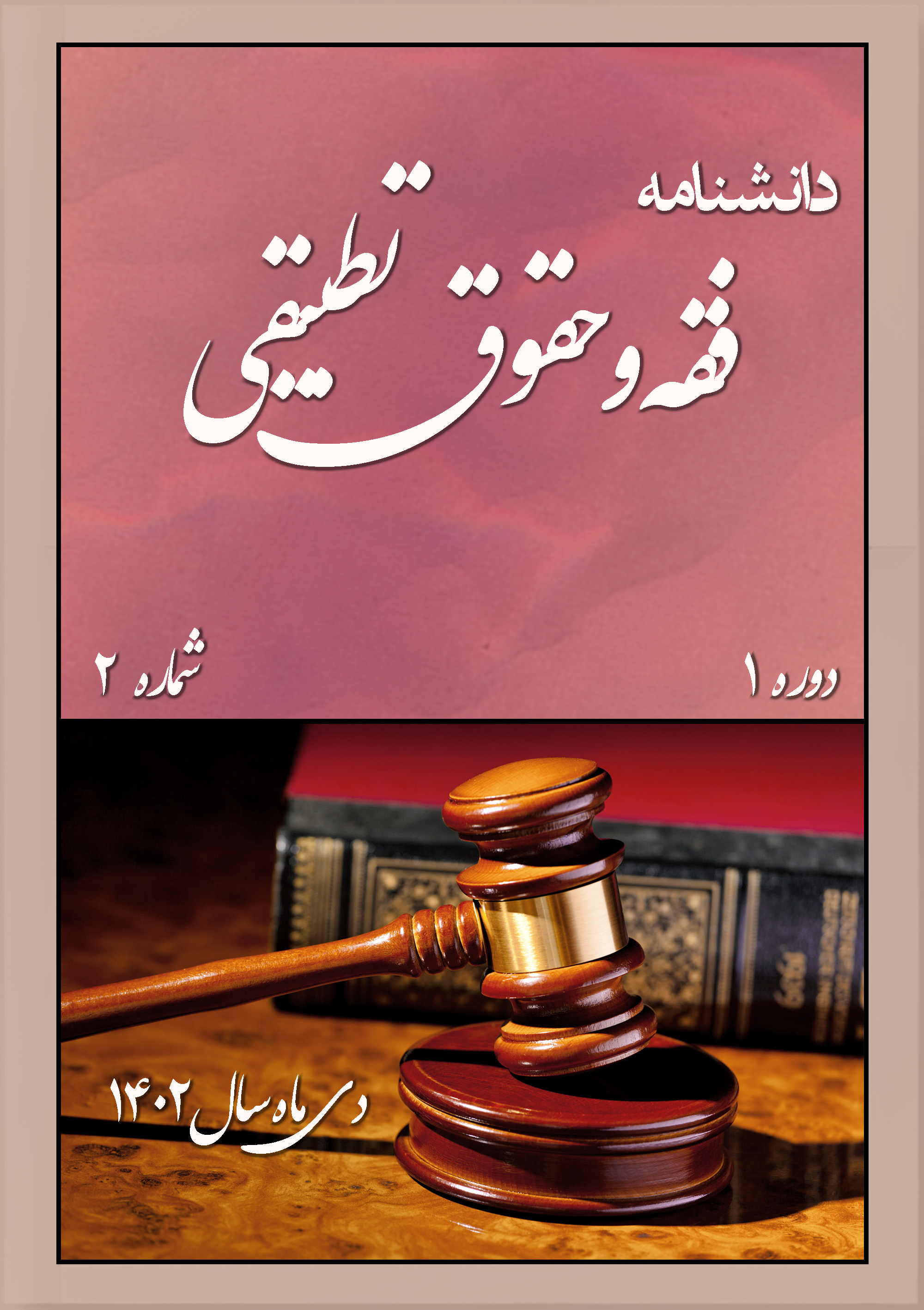Hacktivism: Opportunities and Human Rights Challenges from the Perspective of Islamic Jurisprudence
Keywords:
Hacktivism, Human Rights, Islamic Jurisprudence, CyberspaceAbstract
This article examines the opportunities and human rights challenges arising from the phenomenon of hacktivism from the perspective of Islamic jurisprudence. The objective is to present a jurisprudential framework for assessing this type of activity and its implications for human rights. The present study employs a descriptive-analytical method and relies on library sources, including jurisprudential texts, legal documents, and scholarly articles related to hacktivism. Hacktivism may be regarded as a tool for exposing injustices and defending violated rights, which aligns with the general principles of enjoining good and forbidding wrong in Islamic jurisprudence. However, the methods employed in hacktivism, such as violations of privacy and disruption of systems, create serious ethical and legal challenges that require precise jurisprudential scrutiny. Hacktivist actions, with their dual nature, create challenges for the international criminal justice system, as they often blur the boundaries between lawful conduct and criminal activity. This duality raises fundamental questions regarding legitimacy, moral and legal responsibility, and the manner of addressing this phenomenon from the perspectives of human rights and Islamic jurisprudence.
Downloads
References
Broussard, M. (2018). Dark matters: On the ontology of cybernetic objects. MIT Press.
Brown, A. (2019). Digital property rights and cybercrime. Tech Publications.
Castells, M. (2012). Networks of outrage and hope: Social movements in the Internet age. Polity Press.
Chen, L. (2018). Sovereignty in the digital age: Cyber interference and international law. Global Press.
Davis, R. (2022). The ethics of hacking and data manipulation. Cyber Ethics Publishing.
Denning, D. E. (2001). Activism, hacktivism, and cyberterrorism: the internet as a tool for influencing foreign policy. In J. Arquilla & D. Ronfeldt (Eds.), Networks and Netwars: The Future of Terror, Crime, and Militancy (pp. 239-288).
Eslami, A. (2014). The Method of Courts' Jurisdiction in Adjudicating Cybercrimes. Journal of Justice Legal Affairs, 78(88), 37-64.
Fletcher, R. (2014). Cyber activism: The politics of the internet. In C. de Vreese, C. R. Berger, & S. J. Ball (Eds.), The international encyclopedia of political communication (pp. 1-11). John Wiley & Sons, Inc.
Hajjarian, P. R. (2019). An Examination of Mens Rea in Different Types of Crimes in Islamic Jurisprudence and Iranian Law. Quarterly Journal of Iranian and International Comparative Law, 12(44), 93-119.
Hedayati Fakhr Davoud, A. (2009). Usul-e Akhlaq-e Ejtemaei-ye Eslam az Manzar-e Imam Khomeini (r.a.). Institute for Compilation and Publication of Imam Khomeini's Works.
Hosseini, A. A. (2021). A Critique on the Validity of the Rule "Preventing Corruption Takes Precedence Over Attracting Benefit". Fiqhi and Usuli Researches, 7(23), 7-40. https://doi.org/10.53315.2020.jrj/22034.10
Jamali, R. (2024). A Comparative Study of Cyber Laws in China, the United States, and Russia: Necessities and Requirements for the Cyber Security of the Islamic Republic of Iran. Quarterly Journal of Defense Logistics and Technology, 7(3), 77-108.
Jordan, T. (2004). Hacktivism and Cyberwars. Routledge. https://doi.org/10.4324/9780203490037
Karagianopoulos, V. (2018). Living with hacktivism: From conflict to symbiosis. In T. J. Holt & M. H. M. M (Eds.), Digital activism (pp. 97-114). Springer. https://doi.org/10.1007/978-3-319-71758-6
Krotofil, A. (2018). The politics of hacktivism. In Digital activism (pp. 97-114). Palgrave Macmillan, Cham.
Lee, S. (2021). Misinformation and disinformation in the digital landscape. Media Studies Publishing.
Li, X. (2013). Hacktivism and the first amendment: drawing the line between cyber protests and crime. Harvard Journal of Law & Technology, 27.
Majlisi, M. B. (2003). Bihar al-Anwar (Vol. 67). Dar Ihya' al-Turath al-Arabi.
Makarim Shirazi, N. (1999). Al-Madkhal fi Ilm al-Usul. Madrasat al-Imam Ali ibn Abi Talib Publications.
Miller, D. (2020). Understanding DDoS attacks: Impact on freedom and access. Network Security Books.
Musiani, F. (2015). Hacktivism: A new frontier in political activism. In The handbook of digital politics (pp. 275-287). Oxford University Press.
Nazari Tavakkoli, V. (2021). A Jurisprudential Analysis of Hacking Information Systems. Researches in Islamic Jurisprudence and Law, 17(66), 226-251.
Owen, T. (2017). Hacktivism: The digital age of protest. In The Routledge handbook of protest movements (pp. 375-388). Routledge.
Pahlevani, M. T. (2012). Challenges and Opportunities in Cyber Criminology. Semanan Law Enforcement Science Quarterly, 2(6).
Pourghahramani, B. (2021). A Conceptual Model of Criminal Policy for Cybercrimes in Iran. NAJA Strategic Studies Quarterly, 6(20), 129-154.
Solomon, R. (2017). Electronic protests: Hacktivism as a form of protest in Uganda. Computer Law & Security Review, 33, 718-728. https://doi.org/10.1016/j.clsr.2017.03.024
Svensson, J. (2017). Hacktivism and its political implications. Global Jurist, 17(1), 1-21.
Wall, D. (2007). Cybercrime: The interrogation of the digital offender. In The Blackwell companion to Criminology (pp. 349-363).
Wang, F. (2022). Freedom of speech in the internet age: Responsibilities and misuses. Communication Studies Press.
Weber, R. (2014). Legal aspects of computer crime. In The Cambridge handbook of the hacker ethic and the Internet (pp. 209-228). Cambridge University Press.
Downloads
Published
Submitted
Revised
Accepted
Issue
Section
License
Copyright (c) 1403 نسرین امامی, هما داوودی گرمارودی, بتول پاکزاد (نویسنده)

This work is licensed under a Creative Commons Attribution-NonCommercial 4.0 International License.










